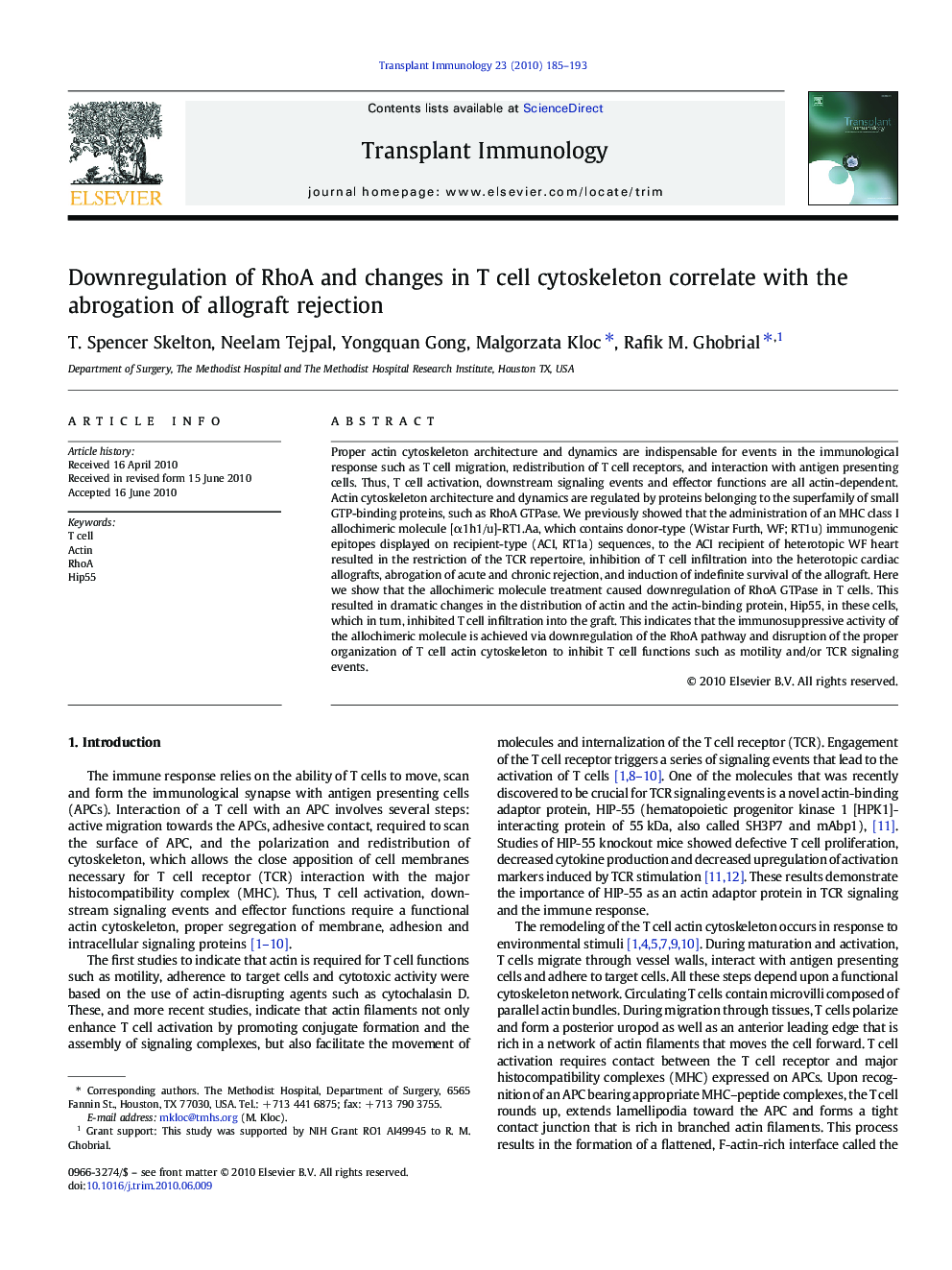| Article ID | Journal | Published Year | Pages | File Type |
|---|---|---|---|---|
| 3392345 | Transplant Immunology | 2010 | 9 Pages |
Proper actin cytoskeleton architecture and dynamics are indispensable for events in the immunological response such as T cell migration, redistribution of T cell receptors, and interaction with antigen presenting cells. Thus, T cell activation, downstream signaling events and effector functions are all actin-dependent. Actin cytoskeleton architecture and dynamics are regulated by proteins belonging to the superfamily of small GTP-binding proteins, such as RhoA GTPase. We previously showed that the administration of an MHC class I allochimeric molecule [α1h1/u]-RT1.Aa, which contains donor-type (Wistar Furth, WF; RT1u) immunogenic epitopes displayed on recipient-type (ACI, RT1a) sequences, to the ACI recipient of heterotopic WF heart resulted in the restriction of the TCR repertoire, inhibition of T cell infiltration into the heterotopic cardiac allografts, abrogation of acute and chronic rejection, and induction of indefinite survival of the allograft. Here we show that the allochimeric molecule treatment caused downregulation of RhoA GTPase in T cells. This resulted in dramatic changes in the distribution of actin and the actin-binding protein, Hip55, in these cells, which in turn, inhibited T cell infiltration into the graft. This indicates that the immunosuppressive activity of the allochimeric molecule is achieved via downregulation of the RhoA pathway and disruption of the proper organization of T cell actin cytoskeleton to inhibit T cell functions such as motility and/or TCR signaling events.
